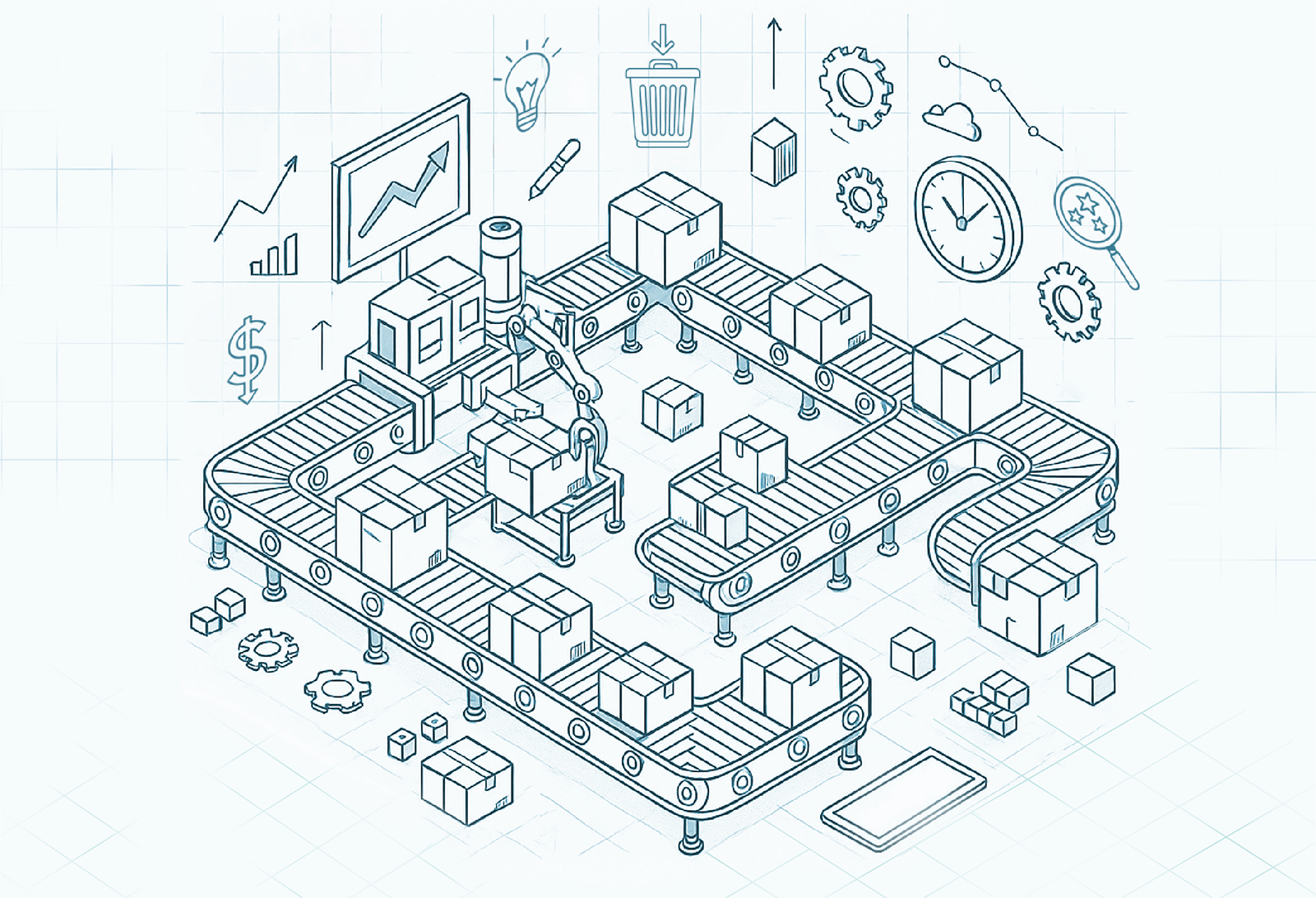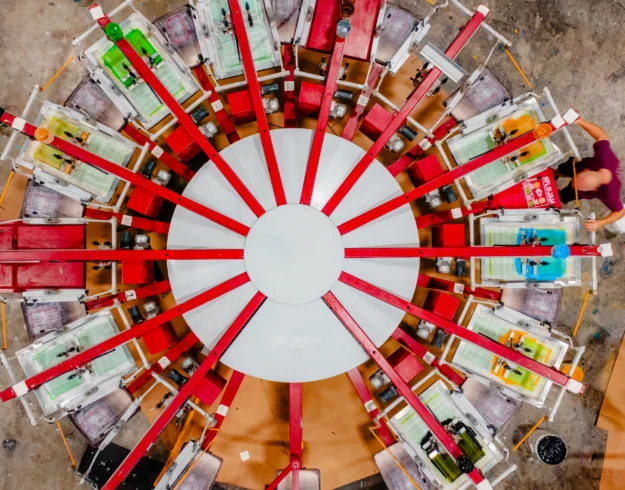Manufacturing inefficiencies can hurt profits and hinder growth. Just-In-Time (JIT) manufacturing offers a solution that delivers significant benefits, transforming companies’ operations.
What is Just-In-Time JIT Manufacturing?
JIT manufacturing is a workflow process in manufacturing designed to cut down waste and lower operational costs. This method reduces waste by ensuring only essential items are produced and kept in stock.
Materials arrive and items are produced only when necessary or “just in time”. JIT manufacturing achieves efficiency through waste minimization in several key areas.
Manufacturing Waste
There are seven types of waste in JIT manufacturing. Removing these wastes is critical to JIT success:
- Overproduction: Producing more than is needed and/or sooner than needed.
- Waiting: Time spent by workers or machines waiting for the next step.
- Transport: Unnecessary movement of materials or products.
- Over-processing: Doing more work on a product than is required by the customer.
- Inventory: Excess raw materials, work in progress, or finished goods.
- Motion: Unnecessary movement by people.
- Defects: Products or services that do not meet quality requirements and require rework or scrap.
By identifying and removing these seven wastes, JIT manufacturing creates leaner, more efficient processes that limit day-to-day costs.
Why JIT Manufacturing?
These waste reduction efforts offer several key benefits that impact an organization’s profitability and efficiency. By identifying and eliminating activities and materials that don’t add value, companies can improve productivity across several areas.
Reduce Waste
JIT manufacturing is a waste reduction strategy that focuses on minimizing resource use. This process reduces waste by cutting down on excess inventory, preventing overproduction, and streamlining movement, transport, and waiting times.
Lower Costs
Minimizing waste in production processes, from raw material procurement to finished goods delivery, directly translates into lower costs. JIT manufacturing decreases costs associated with inventory, specifically capital and space, as well as labor costs.
Improved Efficiency and Productivity
By reducing waste, productivity naturally increases. JIT enables resources and materials to be used more effectively. This results in faster production cycles and smoother workflow. Employees can focus on productive, value-driven work.
Enhanced Quality Control
Waste often comes from errors, defects, and inconsistencies. However, defective parts or products are much easier to spot when there are fewer items to inspect, increasing quality control. Additionally, smaller inventories enable faster response times. This is because problems are relayed back to the source of the issue much faster.
Increased Flexibility and Responsiveness
JIT helps businesses respond quickly to changes in customer demand. JIT minimizes excess inventory, so companies can quickly produce new products. This creates shorter lead times for customers and, ultimately, improved customer satisfaction.
How Does JIT Manufacturing Work?
Core Principles and Techniques
- Pull System: Customer demand triggers production, rather than forecasts or demand expectations.
- Minimal Inventory: Organizations produce items in smaller batches to reduce lead times and inventory.
- Streamlined Processes: Implementing systems that are as efficient as possible, reducing transition time between different products, enables rapid production turnover.
- Total Productive Maintenance (TPM): Proactive maintenance prevents equipment breakdowns before they occur.
- Supplier Relationships: Organizations cultivate strong, collaborative partnerships with reliable suppliers to ensure timely deliveries.
- Continuous Improvement: Teams engage in ongoing work to improve processes, products, and services.
Challenges and Considerations
When implementing JIT manufacturing, it’s important to consider several factors. A primary concern is the system’s inherent reliance on timely and continuous deliveries from suppliers. This dependency can make the system vulnerable to supply chain disruptions. Additionally, JIT manufacturing requires high-quality production, as defects can cause significant disruptions regardless of the manufacturing method used.
Stephen Gould’s JIT Services
Stephen Gould’s JIT services focus on minimizing waste and maximizing efficiency by offering services such as tracking and inventory management, materials warehousing, procurement resource planning, and trusted supplier analysis. The result is a streamlined operation that responds quickly to market changes while reducing overall operational costs.


